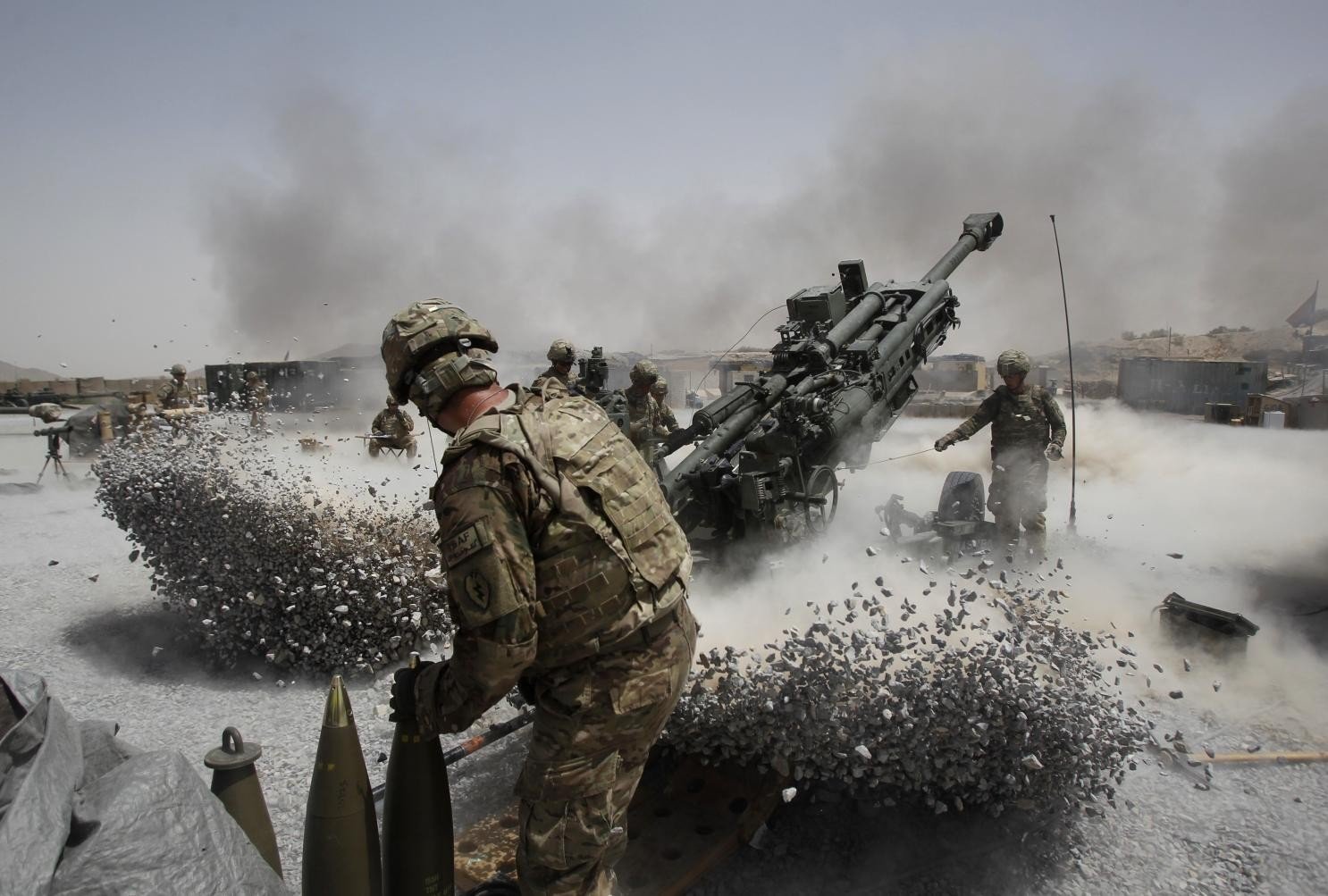
While Taliban speak with one voice, at least up to now, their interlocutors are a divided house

The ongoing Afghan peace talks have both strengths and weaknesses. On the former count, the US, better late than never, is willing to engage regional states, with the exception of Iran, to find out a solution to the Afghan conflict. Likewise, talks with Taliban have not failed as yet. On the latter count, the Afghan government remains sidelined.
The US, surrendering to the Taliban pressure, has found it convenient to talk to Taliban directly. Similarly, Afghanistan is a divided house. It is the president versus CEO; the president versus his political opposition, the likes of former Afghan president Karzai; the government versus Taliban and the Afghan president versus the US State Department. President Ashraf Ghani has been trying to carve a niche for himself.
In March, Afghan President Ghani mounted his government spring offensive dubbed Operation Khalid. The government offensive contradicted its own stance. On various occasions, Ghani implored Taliban for peace. The government offensive should be seen as the president’s growing frustration emanating from his administration exclusion from the peace talks. It was a warning to the US in the sense that without participation from the incumbent Afghan government in peace talks, the war is far from over.
Similarly, Ghani wants to be relevant in an environment in which he has been increasingly losing his relevance. Initiating offensive, holding Loya Jirga, sticking to power with no intent to vacating seat in run-up to presidential election in September 2019 are all instances of Ghani finding relevance. Ghani’s tenure as president ends on 22 May. 12 out of 18 presidential candidates have asked him to either step down or quit presidential race scheduled for September 2019. The Supreme Court has allowed the incumbent government to continue until the election, however.
On April 9, the militant movement announced its spring offensive, Operation Al-Fath -- victory. Had it not for the government offensive, Taliban wouldn’t have announced their own. Ghani was criticised for announcing his government offensive which, critics believed, provided a justification to Taliban to initiate their own spring offensive. This position is hardly tenable.
A militant movement, which has reaped the dividends of violence, would have hardly stopped short of announcing its offensive even if the Ghani administration had not announced one. Taliban have, at times, said it publically that it is because of their ground victories that the US has started peace talks with them. Keeping the Afghan government aside, the militants could have taken their cue from the US action other than the Afghan government, which Taliban have been labeling as "puppet" of the West.
The US sought waivers to travel ban of a number of Taliban negotiators to participate in talks. The United Nations Security Council (UNSC), on April 6, exempted 11 members of Taliban from travel ban to participate in peace negotiations in a range of countries. The exemption is for a nine-month period beginning on April 1 and ending on December 31, 2019. "The requested exemption is solely for travels required for participation in peace and reconciliation discussions," UNSC notification read adding "the Committee has also decided to grant a limited asset freeze exemption only for financing exempted travels."
Even if for the sake of argument, it is accepted that Taliban launched their offensive because the Afghan government’s offensive preceded theirs, why did Taliban reject the call of recently held Loya Jirga for immediate ceasefire between the government and Taliban in the Muslim holy month of Ramzan. The terrorist movement derided the jirga’s call for ceasefire and instead said that waging war in Ramzan bestows "even more rewards."
The April 20-21 meeting between Taliban and 250 participants from Afghanistan, including the Afghan government representatives in personal capacity, was cancelled. "The decision is due to lack of agreement around participation and representation…", the official statement issued from Professor Sultan Barakat, Director for Centre for Conflict and Humanitarian Studies Qatar, read so. The centre had been facilitating the meeting. President Ghani bristled at Qatari authorities saying that they had authorised a list of Afghan participants that is different from the one proposed by Kabul. Taliban mocked the 200 plus participants’ list as "wedding party".
From April 21 to May 11, Special Representative for Afghanistan Reconciliation Zalmay Khalilzad travelled to the United Kingdom, Afghanistan, Pakistan, India, Russia and Qatar "to facilitate a political settlement that ends the conflict in Afghanistan", US Department of State media note stated. His travel to Afghanistan was aimed at building consensus around making of a national team to talking to Taliban, an intra-Afghan dialogue. Khalilzad visited the rest of countries on his itinerary to help build "international consensus to US approach to end the war", he tweeted after he met with representatives from Russia and China in Moscow.
A joint statement issued called upon Taliban to participate in peace talks with a broad, representative Afghan delegation that includes Afghan government and supported a comprehensive ceasefire.
Back to Doha, on May 2, in the opening ceremony of the recently held talks, Khalilzad’s call to Taliban "to put down arms, stop the violence, and embrace peace" did not get any positive response from the Islamist militia. On May 9, the sixth round of talks came to an end. "We made steady but slow progress on aspects of the framework for ending the Afghan war. We are getting into the nitty gritty. The devil is always in the details," the Special Representative tweeted. The desire for a comprehensive ceasefire couldn’t be realised. "Our proposal for all sides to reduce violence also remains on the table," he tweeted.
The biggest weakness, in the talks to convince Taliban to concede to a ceasefire and talk to the Afghan government, is the spectre of urgency on the part of the US to withdraw from Afghanistan. While Taliban speak with one voice, at least up to now, their interlocutors are a divided house.